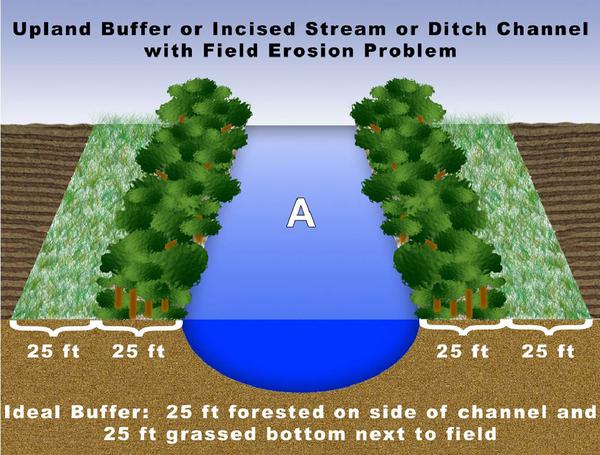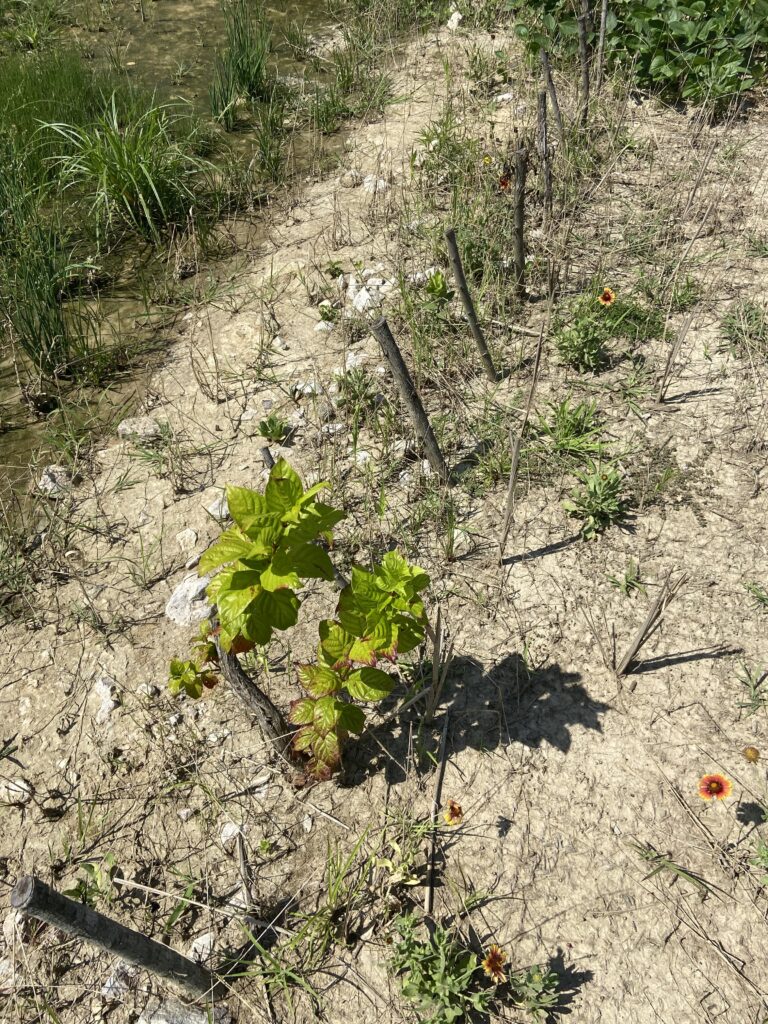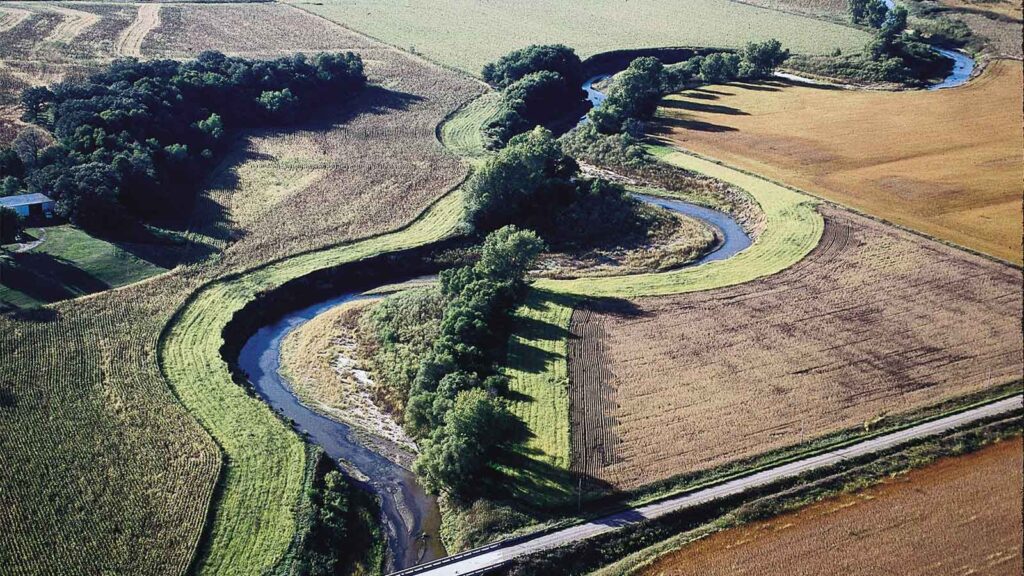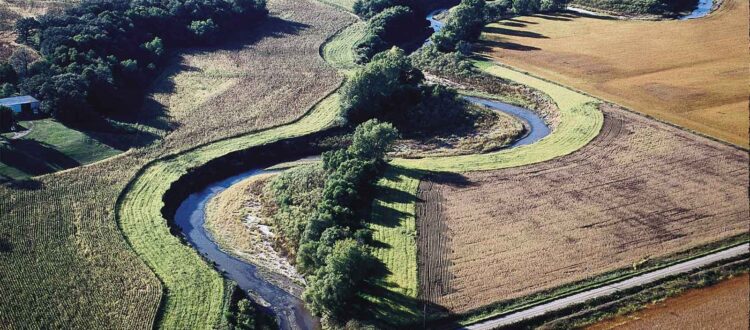Riparian Buffers
Riparian buffers are an effective tool to fortify stream and river channels. Over time and without adequate vegetation, physical forces will erode streams and other water bodies’ banks. This erosion can lead to land loss, flooding, bank collapse, and channeling. Riparian buffers are vegetation areas or constructed wetlands separating the banks of a water body from the upland areas.

Riparian buffers offer numerous benefits other than streambank and erosion control. Well-established hydric vegetation can help with flood impacts or filter sediments and pollution. Species composition should be dictated by what is native to the area. In the Houston area, woody species composition can include mixtures of quick-establishing species such as green ash and pine and slower-growth hardwoods such as water oak and cedar elm. Native shrubs can include American Beautyberry and Parsley Hawthorne. On bank slopes hydric vegetation such as Common rush, Giant Bulrush, and Squarestem Bulrush. Live stakes of buttonbush, roughleaf dogwood, and black willow can be installed for long-term streambank stabilization. A seed mixture of native prairie grasses and forbs can be installed on the upland areas. As with any constructed landscape, maintenance will be needed to manage invasive species and maintain integrity of the riparian buffer.



